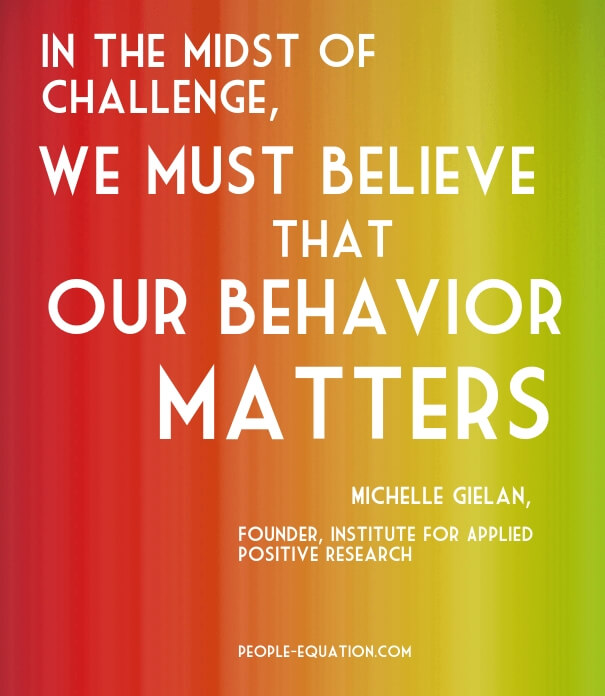 After a powerful presentation on “The Optimism Quotient: Changing Our Mind, Fueling Our Success” at the WorkHuman conference, happiness researcher Michelle Gielan conducted a Q & A. One of the first questions out of the gate is probably one she hears a lot. An audience member said, “I really believe in the power of an optimistic outlook and I work to demonstrate that at work. But lately, my co-workers have been rolling their eyes at my optimism. How can I maintain a positive outlook but not seem like a Pollyanna?”
After a powerful presentation on “The Optimism Quotient: Changing Our Mind, Fueling Our Success” at the WorkHuman conference, happiness researcher Michelle Gielan conducted a Q & A. One of the first questions out of the gate is probably one she hears a lot. An audience member said, “I really believe in the power of an optimistic outlook and I work to demonstrate that at work. But lately, my co-workers have been rolling their eyes at my optimism. How can I maintain a positive outlook but not seem like a Pollyanna?”
It was a common question at the conference, which features speakers on topics such as positive psychology, mindfulness and optimism in the workplace. Conference attendees were “sold” on being positive, but had encountered less-than-enthusiastic responses from their colleagues.
Gielan acknowledged that all professionals want to be seen as a person of substance. Nobody wants to appear clueless about a business challenge. She addressed the question by saying that we need to strive for rational optimism. This is the type of optimism that acknowledges a challenge and sees a positive way forward. Gielan cited a study in which people exposed to potential solutions after reading a sad story about world hunger felt 20 percent more positive than the control group who read the sad story, but had no solutions provided. The key element in this research is hope—the belief that perhaps something can get better.
She went on to say it’s important that when we come up against life’s challenges, we feel that our behaviors in addressing our challenges will matter—that we can have a positive impact on our situation. That’s not to say we ignore a troubling situation or a dire problem. Rather, we tell ourselves, “I can handle this. I have had successes and wins in the past. I will be able to deal with challenges that come my way.”
She counseled the audience member to first validate that the problem exists. “It’s important that you demonstrate that you understand the situation and that you have made a realistic assessment.” It is only after you show that you understand what you’re up against, that you can the move on to optimism by expressing confidence that a solution will be found.
Here are five things to say that will help show you are a rational optimist:
- What are your biggest concerns about this situation?
- What has been tried before? Why do you believe it didn’t work?
- I want a realistic assessment. What am I missing?
- Let’s assume for a moment we could solve “X” (X = biggest barrier.) If we did that, what else would prevent us from moving forward?
- Where am I being too optimistic in my assessment of the situation?
Some people are pessimistic and no amount of role-modeling a positive mindset will change their ways. Yet there’s a whole group of people out there who are simply skeptical of an overly enthusiastic person. Or, they may have been burned before by someone’s promises of a “better way.” You can avoid looking like a Pollyanna if you first acknowledge the challenge, then confidently express hope (without over-selling it) that your team can find a solution.
Leave a Reply